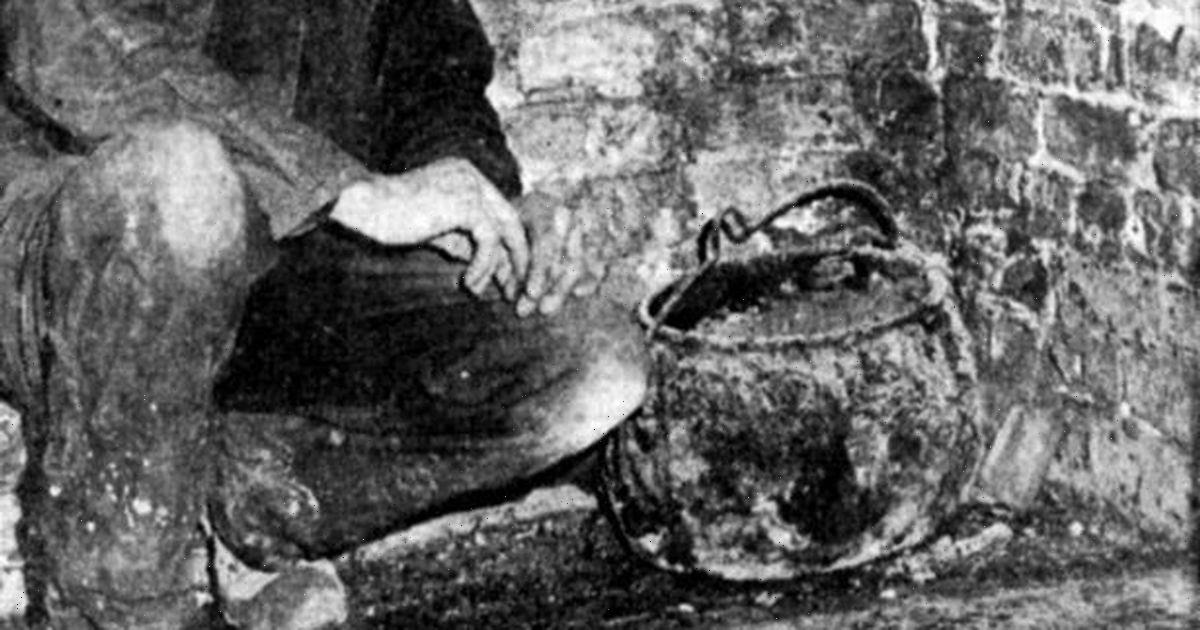Jesus Christ: Expert discusses ‘humorous’ story
When you subscribe we will use the information you provide to send you these newsletters. Sometimes they’ll include recommendations for other related newsletters or services we offer. Our Privacy Notice explains more about how we use your data, and your rights. You can unsubscribe at any time.
More than two billion people worldwide live in the belief Jesus Christ was the Son of God who died on the cross as the ultimate sacrifice for humanity’s sins. Those who do not follow the doctrines of the Christian faith reject this belief but may still accept Jesus Christ was a historical figure who, arguably, became the most famous man to have ever lived long after his death. But there is also a group of people who reject both ideas entirely – Jesus was not a divine figure because he simply did not exist.
A 2015 poll conducted by the Church of England suggested some 40 percent of the people in England do not believe Jesus was a real person.
According to the poll’s findings, 43 percent of those surveyed said they believed in the resurrection, and less than 10 percent regularly read the Bible.
Tom Meyer, a professor of Bible studies at Shasta Bible College and Graduate School in California, US, thinks these are worrying statistics.
The scripture expert told Express.co.uk there is a substantial record of Jesus’s life outside of the Bible’s New Testament.
Professor Meyer said: “Within the survey, 25 percent of the 18 to 34-year-olds believed he was a mythical character.
“Some opponents of Christianity ridicule the historical accuracy of the life and times of Jesus of Nazareth as recorded in the New Testament.
“However, extra-biblical verification of the existence of Jesus exists from both Jewish and Roman primary sources and should put to rest any doubts about whether Jesus of Nazareth existed.”
One such source, the expert explained, can be found in a Jewish text found in the Babylonian Talmud.
The text, which has been codified in 550AD but was already in circulation before the date, appears to confirm Jesus’s death.
Professor Meyer said: “It states in one of its tractates (Sanhedrin 43a) that Jesus was killed by the authorities on Passover Eve by way of stoning and then hung on a tree because he practised sorcery, incited people to idol worship, and led the Jewish people astray.
“Of course, this totally contradicts the New Testament account concerning the ministry and subsequent death of Jesus of Nazareth; nonetheless it demonstrates the Jewish acceptance – still perpetuated 500 years after Jesus lived – that Jesus really was a real person whose claims precipitated his public execution.”
Dead Sea Scrolls: Expert discusses link to Jesus Christ in 2014
Another source has been dated to the first century AD – much closer to the time of Jesus’s death on the cross.
The Jewish-Roman historian Flavius Josephus penned a text about the Roman governor of Judea, Pontius Pilate, and touches upon the person of Christ.
In his book Antiquities of the Jews, Josephus writes about both Jesus and John the Baptist.
Book 18 of the text, which is known as the Testimonium Flavianum, speaks of Jesus being sentenced to death by Pilate.
Josephus wrote: “About this time there lived Jesus, a wise man, if indeed one ought to call him a man.
“For he was one who performed surprising deeds and was a teacher of such people as accept the truth gladly.
“He won over many Jews and many of the Greeks. He was the Christ.
“And when, upon the accusation of the principal men among us, Pilate had condemned him to a cross, those who had first come to love him did not cease.”
DON’T MISS…
‘Rediscovery of Hittite civilisation’ proves Bible is right – claim [INTERVIEW]
Where is Jesus’s tomb? Archaeology and Bible point to exact location [INSIGHT]
End of the world: What the Bible said must happen before Jesus returns [ANALYSIS]
In another text, Josephus wrote about the martyrdom of a man named James, whom he identified as Jesus’s brother.
Professor Meyer said: “There are also several references to Christians and indirectly to Jesus in Roman literature from the second century and following.
“When speaking of Christians, the Roman historian Tacitus (115 AD) states ‘the author of this name (Christians), Christ, suffered the ultimate penalty at the hands of the procurator Pontius Pilate during the imperium of Tiberius.’
“It is undeniable that biblical and extra-biblical evidence demonstrate that Jesus really was a historical person.
“Assured of his historical existence, the challenge we now face, as the famous British writer C.S. Lewis once put it, is: ‘You must make your choice. Either this man was, and is, the Son of God: or else a madman or something worse.
“‘You can shut him up for a fool, you can spit at him and kill him as a demon; or you can fall at his feet and call him Lord and God.
“But let us not come with any patronizing nonsense about his being a great human teacher. He has not left that open to us. He did not intend to.'”
There are, of course, some historians who have challenged the authenticity of some of these texts.
Josephus’s writings, in particular, have been interpreted by some as later Christian interpolations.
Paul L. Maier has argued Josephus, who was Jewish, would not have referred to Jesus as the Messiah.
A 2012 paper published by the Queen’s University Belfast has analysed the Testimonium in great detail.
The paper reads: “The first Christian writer whom we can see
apparently using the text of Josephus is Origen in the third century. In his commentary on Lamentations, Origen said of Josephus: ‘although not far from the truth [he] did not believe in Jesus as the Christ”, an affirmation that was repeated in his contra Celsum.'”
Source: Read Full Article






